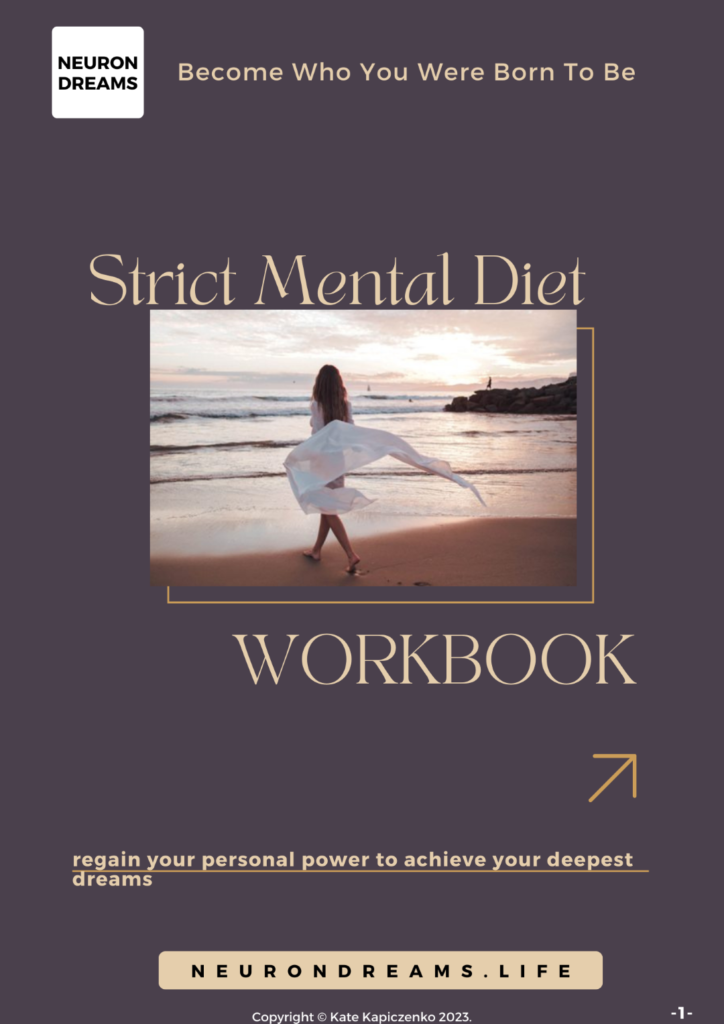Don't let Amygdala to Control your Life
simple tips and healthy hacks to deal with a panic attack in a public place
Disclaimer
Please always remember that there is no quick fix for any mental health issue. In order to overcome it, you have to address your problem and ask for help a mental health professional. There are many mental health institutions where you can find professional support. Suffering in secret is never a good idea. Mental health professionals are out there to help people with any type of mental health issue. Don’t minimize your problems, sometimes everyone needs help and there is nothing to be ashamed of. If you find it difficult to go to the mental health institution just call a helpline (you can easily find a number online and it’s free!)
Remember you are not alone even if you feel this way. Many people have mental health problems especially in today’s world where it becomes more and more difficult to cope with stress and anxiety.
Don’t suffer in silence. Ask for help if you need it.

Anxiety is a Big Fat Liar
Well, so it happened. The thing that you were afraid the most has just happened. You’re having a panic attack. Something or someone has triggered your anxiety.
You really didn’t know what was coming… till now. This all came out of nowhere and it just keeps getting worse. Every second that passes is bad, even worse than a previous one. The adrenaline kicks in like an electromagnetic impulse that just spreads throughout the whole body. Your body temperature just like the sense of disorientation continues to increase. Your stomach is flipping and your heartbeat is abnormally strong. Vision and hearing get heightened. Colors seem more intense and shape more focused. Every sound becomes painfully loud and frightening. Both your mind and body are corrupted by the raising anxiety that quickly turns into a panic attack. Your brain switches immediately on a survival mode. But the worst is still yet to come. You can barely breathe. Desperately trying to catch your breath you only complicating things. It’s no longer anxiety but a panic attack that has already left you paralyzed. The stress you are experiencing reached a dangerous level and you know that you have to do something, anything before it gets really bad. You need to act before fear completely overwhelm you and paralyze you.

Stay Calm, It's just a Panic Attack
So you’re having a panic attack.
Everything started with a brief thought, scent, sound, touch or gaze. You are not sure yet what has really caused this extreme emotional state. All you know is that your brain instantly switches into survival mode. You are scared of making any move because the real danger can come from every angle. So you need to be careful and keep a sharp lookout. You need to be extremely alert and attentive… one false move and the consequences could be disastrous. But is that really true? Is your life in real danger? Maybe it’s your mind playing games with you. Have you thought about that?

F3 or the Fight-Flight-Freeze Response
Ladies & Gentleman, please be upstanding for the primitive responses to fear, the Amygdala.
The amygdala, an almond-shaped structure served the prehistoric caveman well as an “an alarm system” when out hunting for their dinner. Without this ancient part of the brain responsible for autonomic responses, the first hunting of our prehistoric ancestors would most probably have been also the last one.
In the modern world, correct me if I am wrong, we’re not facing life-threating dangers when out for dinner. But the amount of stress we live in on a daily basis definitely makes us hyper-vigilant which makes the amygdala overactive.
The problem with Amygdala, if I may say so, is that it cannot tell the difference between a memory, a thought, a real event, daydreaming, an emotional threat or some real event that has happened in the past.
Which means that when we get stimulated by thought, an emotion or flashback, Amygdala immediately sends an emergency signal to the hypothalamus that triggers a physiological reaction called “the fight, flight or freeze response”. This neurological Crisis Response Center we all have in our brain serves us when we are in real danger but when someone suffers from Anxiety or Panic Disorder it can be deceiving. That’s why it is so important to learn some strategies to manage an overactive amygdala to reduce chronic anxiety and prevent panic attacks. The first step to do calm down your overactive amygdala is to identify your emotional triggers. Next thing to do is to apply one or more calming strategies when you feel like having a panic attack. So let’s do it!
Identify Your Emotional Triggers
- Make a list of all of the things that trigger your anxiety on a daily basis
- Make a list of all your fears
- Make a list of possible bad scenarios and find solutions to them
- Create your own self-calling strategy (HERE is mine)

Smart Tips and Powerful Hacks to Stop a Panic Attack before Things Get really Bad
1. Breathe
Hold it there, that’s far enough. Stop this cycle of negative self-talk. Close your eyes and take a couple of deep slow and deep breaths. Focus on here and now. Stop overanalyzing the past and worrying about the future because it will get you no-where but more anxiety. Anxiety talking with the mouth of your inner critic is telling you big fat lies. You don’t need to hear that. STOP. Right there and breathe. Don’t think just breathe. Inhale, exhale, repeat.
Explore your breath.
Close our eyes or concentrate your eyesight on a single point and start breathing mindfully. Focus on your breath, don’t try to change it, accept it and notice how your heartbeat slows, your breath becomes deeper and you begin to feel better…
Use your breathing to fuel relaxation and observe how this simple technique calms you down.


2. Challenge your Negative Self-Talk
Don’t beat yourself up for having an anxiety or panic attack. Negative self-talk only increases your anxiety levels and the risk of having a major panic attack. That’s why it’s so important to notice your negative self-talk especially if you feel emotionally triggered.
So tell me, What are you telling yourself when you’re having a panic attack? Are you kind to yourself? What are the exact words your inner voice is telling you?
If your self-talk is negative try to challenge it. Try to change negative self-talk with positive affirmations. Talk yourself up! Don’t feel ashamed. Tell yourself some loving and supportive things to make yourself feel a bit better. Tell yourself how strong, brave and courageous you are.
You are in control!
Keep telling it to yourself. Use these words as your mantra.
3. Focus on the Facts
Thoughts are NOT facts. Furthermore, most of the time they’re even not true. Our mind loves to play tricks on us by mixing together thoughts, beliefs, opinions, and facts without labeling them properly which makes us believe that everything that this little voice in our head tells us is true. But it’s not. That’s why it is crucial to separate thoughts from facts. ALWAYS.
Remember that when you’re anxious your perception of reality is VERY distorted. That’s why in a very stressful situation is particularly important to stay mindful and focus on facts. The easiest way to do that is to write down everything you have in mind and then separate your feelings and thoughts form facts. Ask yourself what you can and can’t control.
Ask yourself,
- What is really happening?
- Am I in danger?
- Is this a real or imaginary thread I am perceiving right now?
Ask yourself these questions and write your answers down on a sheet of paper or put it on your smartphone.
You have thoughts you’re not your thoughts. The same thing with feelings. You have feelings you’re not your feelings. You keep telling yourself that especially when you’re having a panic attack.


4. Distract Yourself
- It may seem to be the opposite of being mindful but actually, this is about redirecting your focus on a different thing. Something that will help calm you down.
- If it’s possible, remove yourself from the situation that triggers your anxiety and panic attack.
- Always put your health first.
6. Use your Five Senses
When you feel that you’re having an anxiety or panic attack just stop right there. Breathe. Look around. Ask yourself,
- What do I see?
- Can I smell anything?
- What is really happening?
- What other people are doing and what am I feeling?
- Is this real or imaginary threat my body perceives?
- What can I do to make me feel a bit better?
Don’t force yourself to answer these questions just observe what is happening, be aware of your surroundings, be mindful. Use your senses to manage your emotional distress.


6. Listen to Calm Sounds
Use your mobile phone as a tool to reduce anxiety and stop a panic attack when you’re having one or when you feel one coming on:
- Find the voice that calms you helps you to enter a flow state of mind every time you feel about to panic.
- When you’re anxious, overwhelmed and stressed out just put some good relaxing music, listen to gentle whispering on Spotify or ASMR podcasts and zoned out.
- Create your Spotify list of relaxing songs that will help you to stop a panic attack
- Try to listen to ASMR whispering – I can assure that it helps!
7. Use your Support System
Instead of over-analyzing the situation you’re in and creating different worst-case scenarios talk to someone. Free yourself from this internal tension by sharing your experience with others. Of course, I’m not saying that you should approach a stranger and tell them about your panic attack. Use your phone and call or message someone you can trust. Talk to your family member, friend or even co-worker and describe how you’re feeling. Don’t be afraid to ask for help if you need it. People are around you in your life for a reason.
Talking to someone about your struggles is a great opportunity to release stress and tension from your body, refresh your thinking, gain a new point of view and in consequence look at your situation from a completely different perspective.
- Maybe your current situation is not as frightening as you think?
- Maybe you just fall into a trap of overthinking and over-analyzing that made you feel even more anxious and completely unable to stay rational?
It’s quite possible, right?
So instead of excessive worrying or inventing terrible scenarios that might happen just talk to someone. Get your phone and call a person you can trust.
And if you feel you have no one to talk to about find a forum or online community and read other people’s stories. There are so many chats or online communities that people created to talk about their problems and share their struggles. And let me tell you, people give very good advice!


Best Posts About Health:
- 6 Simple Ways To Live A Healthier Lifestyle HERE
- Free Yourself From Unwanted Intrusive Thoughts HERE
- How To Start Eating Mindfully HERE
- Put Yourself In A Positive Headspace HERE
- The 20 Most Unexpected Benefits Of Anxiety HERE
- It’s Just A Bad Day Not A Bad Life HERE
- Yes, I’m Depressed, No, I’m Not Giving Up – 5 lessons about depression HERE
- 23 Ways To Support Your Friend Or Relative With Their Mental Health HERE
- 10 Powerful Tips To Survive An Emotional Breakdown – Finding Hope In The Face Of Personal Tragedy HERE

9. Do a Reality Check
- Switch from Auto-Pilot (imagining the worst possible scenarios) to Mindfulness (focus on here and now) – Being mindful will help you to avoid getting a complete loss of awareness of the present surroundings
- Think before you act.
- Observe carefully.
- Remember that thoughts are not facts.
- Shift your attention to what is happening in the present moment.
- Observe other people’s behavior and ask yourself a question: Are they calm and relaxed? Is there any real danger?

10. Accept your Feelings
Instead of indulging in negative self-talk that can only lead to more stress, anxiety, and frustration be mindful. Use mindfulness approach and observe these feelings of anxiety and panic without judging them. Be kind to yourself. Give yourself permission to experience your emotions. And remember that:
- It’s OK to feel anxious.
- It’s OK to be afraid.
- It’s OK to feel overwhelmed.
- It’s OK to feel whatever you feel.
Emotions are natural phenomena that serve to protect us and cause us to act not to harm us. They come and go. They can not harm you if you acknowledge and accept them. Emotions are just emotions. You are in control of your life.


11. Keep journaling (Observe and write everything down)
Journaling is one of the best strategies to deal with anxiety and panic attacks. Not only because it helps you to understand how exactly do you feel and what is by using happening but also because it’s a great tool for self-reflection and self-awareness.
When you feel like you’re having an anxiety or panic attack start writing. Write down what you’re thinking about, what are the feelings you’re experiencing and what is emotionally triggering you. Then look around you and focus on what is REALLY happening. What are the facts? Can you separate your thoughts and feelings from the facts? What is REALLY happening right now? Ask yourself these questions and try to answer them.
My advice:
Don’t leave your home without your journal. (I keep my journal on my cloud storage – it’s password-protected of course).
12. Try mindfulness & relaxation techniques
When you feel you’re having an anxiety or panic attack just use your mobile phone as a tool to reduce your anxiety and:
- Try relaxation Apps.
- Do a quick deep breathing exercise (become aware of your breath).
- Do a guided meditation.
- Talk out loud to yourself – Don’t leave your house without your Bluetooth Headsets and pretend to make a phone call.
- Try progressive muscle relaxation
Best Relaxation Apps (in my opinion)

Have you checked my FREE printable workbooks on self-care and prioritizing life? If not, you can DOWNLOAD your 2 FREE workbooks here, just CLICK on the photos!
P.S.
Stay Positive
Be Mindful
Learn to Respond not to React
xo Kate















